The Executive Committee currently comprises:
Kate Baker – Chair
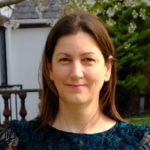
Kate is a Chartered Scientist with over 30 years of experience working in land quality as a specialist consultant, evaluating risks from ground contamination for clients for a variety of drivers, from permitting to due diligence, portfolio management, redevelopment, etc. She specialises in human health risk assessment and is an Accredited SoBRA Human Health Risk Assessor. She has worked on a range of complex sites with multiple stakeholders to satisfy, and has derived risk-based assessment criteria for human health and surface water quality for a wide range of novel contaminants, including pesticides and pharmaceuticals. For much of her career, she has been a lead technical specialist within the businesses that she has worked for, driving quality and technical excellence in data interpretation and reporting and providing practical solutions that satisfy client drivers and regulatory requirements. She has a passion for training and mentoring early careers professionals and is a STEM Ambassador, promoting careers in Geosciences and providing support with Maths to primary and secondary school students. Kate is one of the Tier 2 Toxicologists on the Phase 2 C4SL project.

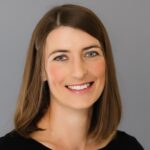
Sarah Bannon – Secretary
Sarah has 20 years of experience in sustainable contaminated land assessment across the UK and Europe, including geo-environmental ground investigation, hazardous materials assessment, human health and controlled water risk assessment, and remediation of brownfield sites. She started her career at ENVIRON UK Ltd in 2004, later becoming part of Ramboll UK Ltd. She spent one year of her career at Delta-Simons Ltd, before returning to Ramboll in 2023, where she predominantly supports industrial/chemical sector clients with environmental due diligence (mergers, acquisitions, divestment, refinancing etc.), liability reviews, permitting, and regulatory compliance, as well as undertaking technical expert reviews and research for public sector clients. Sarah’s background is in geology and geochemistry, specialising in probabilistic modelling and controlled water risk assessment. She has chaired quantitative risk assessment and laboratory services working groups, and is part of a technical forum for per- and polyfluoroalkyl substance (PFAS). Sarah is committed to drive the shift towards more sustainable risk-based land regeneration as part of decommissioning, decontamination and demolition (‘DDD’). Throughout her career, she has mentored and delivered technical training to peers. She is an ability network ally with a personal aspiration to increase awareness and support, and celebrate neurodiversity within our sector.

Rachel Dewhurst – Treasurer

Rachel has 20 years of experience working on water resources projects in the UK, Europe and the Caribbean. She is an expert in groundwater, groundwater geochemistry and contaminated land, and has worked a wide range of projects that lie on the intersection between geography, geology, chemistry and biology. Rachel strongly believes that by working effectively together across disciplines we can develop the best solutions for all stakeholders. Key technical projects include new production boreholes in the Sherwood Sandstone, 20 years of working on an airforce site in the UK, numerous groundwater and human health risk assessments for sites in the UK and abroad and quantifying the feasibility of artificial recharge in terms of geochemistry and natural reactions during injection. She manages the Stantec UK Water – Water Resources Team which challenges her to look at problems with WQ in receiving waters, abstraction impacts on wetlands, river restoration and fish passage projects, as well as her bread and butter catchment, contaminated land and borehole projects. Never one to refuse a challenge, she also works part-time, has three daughters who all do sport, sits on the committee of the UK Society for Brownfield Risk assessment, examines for Chartered Geologist and runs a brownie pack.

Tim Rolfe
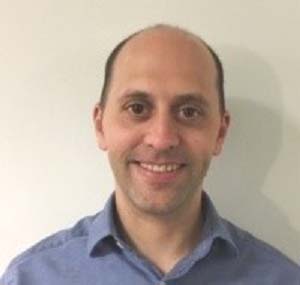
Tim is a Director at YES Environmental and has worked on land quality issues for 25 years, having worked at consultancies in the south-east and north-west of the UK. A SoBRA member since 2010, Tim is a Chartered Scientist with CIWEM, holds ASoBRA for Human Health, Controlled Waters and Vapour Intrusion, and was on the SoBRA AGAC subgroup. He holds a degree in Environmental Biology and a masters in Environmental Diagnosis. He has worked on a range of project sites from petrol stations to large manufacturing sites and former landfills, and has worked for clients from small scale developers to corporates, government and national infrastructure projects. In addition to DQRA he has a strong interest in field techniques and laboratory issues. Tim has a natural instinct for improvement, development of new methodologies and sharing of knowledge for the benefit of all. Away from work he enjoys being in the countryside, hill walking and helps to plant and maintain a community woodland.

Fiona Townley – Website Co-Ordinator and Membership
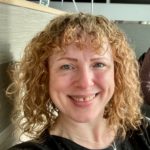
Fiona is a Chartered Geologist with over 25 years experience in environmental consultancy and contaminated land, primarily: design, procurement, management and reporting of phased, often significant and complex, site investigations; human health and controlled waters risk assessments; remediation options appraisals, strategies and implementation plans, and the investigation, management and remediation of spill incidents. This has involved working with a range of clients from individuals through private sector developers, industrial, legal and insurance clients to the public sector, on a wide variety of sites. Fiona has prepared expert witness evidence cases relating to the suitability and adequacy of intrusive ground investigations, sampling regimes and the application of human health risk assessment criteria; together with providing written evidence and attending the public planning appeal for a residential development on a site with complex ground conditions relating to unauthorised landfilling activities. Fiona is also a Qualified Person under the CL:AIRE DoW CoP and applies the principles and knowledge of this to minimise waste and promote re-use in remediation projects. In her current role as Principal Scientist at RSK Raw, Fiona ensures the business complies with current legislation, guidance and best practice whilst providing advice and support on technical matters, particularly the human health risk assessment criteria which Fiona derived following the publication of LQM’s S4UL.

Melanie Lyons
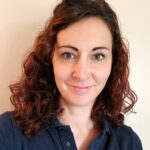
Mel is a Chartered Geologist and certified SiLC and NQMS SQP who has been working in the field of sustainable risk-based contaminated land assessment since 2005. With an MSc in hydrogeology, Mel started working for Mouchel Parkman, before moving to RSK Geosciences in 2007 and most recently joined the Soil and Groundwater team at Shell in January 2023. Mel also spent 2 years working in the contaminated land team at the Northern Ireland Environment Agency and as a Senior Hydrogeologist for the Geological Survey of Northern Ireland, promoting increased understanding of groundwater related science through delivery of training courses and public outreach projects and providing input to relevant areas of government policy, as required. In her current role she is also involved in collaborative research projects, including work around transient source term modelling to support groundwater contaminant fate and transport assessments. Mel is on the Editorial Board for the Geological Society’s Quarterly Journal of Engineering Geology and Hydrogeology, a scrutineer for the SoBRA accreditation scheme, and formerly led the SoBRA Vapour Intrusion (VI) sub-group. Her specialism is hydrogeology and detailed quantitative risk assessment for controlled waters and human health, and she is a SoBRA accredited risk assessor (controlled waters) and SoBRA registered risk assessor (human health). Her experience involves projects from across the UK, Europe, Middle East, India and South Africa, with clients ranging from small scale private developers through to large development corporations and international oil companies and consortia. She also has a passion for mentoring early career professionals and has delivered university lectures on the fundamentals of contaminated land assessment, guidelines and standards, preliminary risk assessments, conceptual site models, risk communication and remedial options appraisals.

Sarah Harris
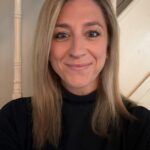
Sarah is a Chartered Environmentalist with 14 years of experience in the fields of quantitative controlled water risk assessment (QCWRA), remediation engineering and environmental regulation.
Her current role is Lead Specialist Advisory in Hydrogeology at Natural Resources Wales, and she previously spent a decade in environmental consultancy and remediation contracting, as both project manager and technical specialist on complex contaminated land and groundwater projects. In her current role, she provides the expert technical lead on contaminated land hydrogeology on a variety of brownfield sites and is responsible for maintaining a high level of technical excellence with respect to groundwater related science and environmental risk-based decision making.
Sarah is an active member within wider industry organisations. She is the current Chair of the Land Condition Early Careers Network (ECN) at the IES and is passionate in providing a platform to empower and support early career practitioners. She co-ordinates with the educational sector and is committed to promoting environmental sciences to those in higher education or the beginning of their careers.

